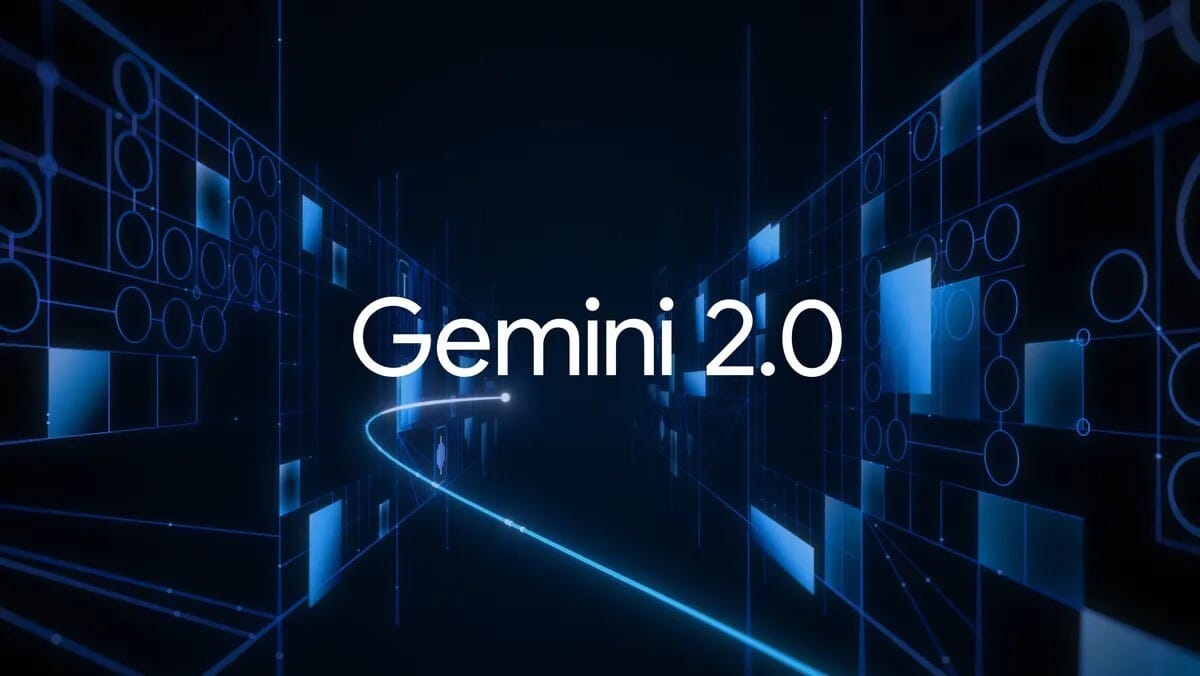- AI Weekly Insights
- Posts
- AI Weekly Insights #59
AI Weekly Insights #59
Shipmas Surprises 2, Agentic Innovations, Compact Brilliance, and Ethical Data
Happy Sunday,
It’s time for ‘AI Weekly Insights’ #59, and this edition is brimming with exciting updates! We’re diving into OpenAI’s ongoing "12 Days of Shipmas" announcements, Google’s launch of Gemini 2.0, Microsoft’s compact yet mighty Phi-4 model, and a groundbreaking public domain dataset unveiled by Harvard. Let’s unravel the stories shaping AI’s ever-evolving landscape.
Ready? Let’s dive in!
The Insights
For the Week of 12/08/24 - 12/14/24 (P.S. Click the story’s title for more information 😊):
What’s New: OpenAI’s "12 Days of Shipmas" campaign continues to deliver groundbreaking updates, expanding AI’s capabilities for creativity, collaboration, and daily utility.
Updates from Days 3-7:
Day 3 - Sora: OpenAI finally released Sora, a text-to-video model that empowers users to generate dynamic, realistic videos from simple prompts. Available to Plus and Pro users, Sora includes features like Storyboard, Remix, and Loop, opening up exciting possibilities for video production.
Day 4 - Canvas: Canvas facilitates real-time collaboration on writing and coding projects. Initially released in beta earlier this year, the feature is now widely available, providing teams with an intuitive space to work alongside AI for brainstorming and creating together.
Day 5 - Apple Intelligence + ChatGPT Integration: ChatGPT is now integrated into Apple’s iOS, iPadOS, and macOS, enhancing Siri’s capabilities. Users can now compose messages and answer complex queries seamlessly within Apple’s ecosystem. This marks a significant step in merging OpenAI’s technology with trusted consumer platforms.
Day 6 - Projects: OpenAI’s new Projects feature enables users to group files, chats, and instructions into dedicated folders. For instance, a marketing professional can keep brainstorming notes, drafts, and campaign assets organized in one project, streamlining workflows and improving productivity.
Day 7 - Advanced Voice Mode with Vision: OpenAI has finally launched Vision capabilities with Advanced Voice Mode. Users can engage in natural, two-way voice conversations while leveraging vision-based inputs like screen share or live camera feeds to enhance the interaction. A festive “Santa Mode” was also introduced, adding a seasonal touch to ChatGPT with a Santa voice option.
Why It Matters: OpenAI's latest features highlight its ambition to seamlessly integrate AI into creativity, work, and daily life. Tools like Sora and Canvas push the boundaries of collaboration and innovation, while Projects addresses organizational needs for professionals. The Apple integration reflects strategic partnerships that broaden AI’s reach, and Advanced Voice Mode with vision enhances interactivity to new levels. As OpenAI sets the pace for rapid AI advancements, it must continue balancing accessibility and sophistication. With five days of announcements still to come, anticipation is high for what’s next.
What's New: Google has unveiled Gemini 2.0, its most advanced AI model yet, emphasizing “agentic” capabilities. This system introduces multimodal outputs, enhanced reasoning, and tool usage, marking a significant leap in AI functionality.
Agentic Models: Gemini 2.0 builds on the foundation of its predecessors with a focus on agentic AI: models that can anticipate tasks, execute actions, and operate with supervision. Notable features include native support for multimodal outputs like image creation and multilingual text-to-speech, as well as advanced reasoning for tackling complex tasks. Currently available to developers and testers, this model will integrate with Google’s ecosystem, including Search, where it handles intricate queries like multimodal inputs and advanced math. Prototypes such as Project Astra (a universal assistant), Project Mariner (browser-based task agents), and Jules (developer-focused coding agents) showcase its diverse potential.
Why it Matters: Gemini 2.0 reflects a paradigm shift in AI development, distinguishing itself from earlier models by prioritizing systems that not only process information but also take meaningful actions based on context and user intent. This shift will enable more intuitive interactions, setting a new standard for AI functionality. This evolution could redefine user interactions across industries, from personalized assistants to autonomous tools in software development and gaming. Looking ahead, Gemini 2.0 signals a step closer to AGI (Artificial General Intelligence), with far-reaching implications for how AI integrates into daily life and work. Try Gemini 2.0 Flash here: https://aistudio.google.com/live

Image Credits: Google
What's New: Microsoft has unveiled Phi-4, a 14-billion-parameter small language model (SLM) designed for advanced reasoning tasks, particularly in mathematics.
Specialized Reasoning with Compact Design: Phi-4 is the latest addition to Microsoft’s Phi family of compact language models, balancing size and performance. Despite its relatively small size of 14 billion parameters, it surpasses many larger models in math-related reasoning, achieving notable benchmarks on math competition problems. This success stems from its reliance on high-quality synthetic and curated organic datasets, alongside innovative post-training techniques. Key features include enhanced reasoning capabilities and integration within Microsoft’s responsible AI framework, ensuring safety and reliability for developers and users.
Why it Matters: Phi-4 demonstrates the growing potential of small language models to achieve performance traditionally associated with much larger systems, marking a significant step forward in efficiency within AI development. Its advanced mathematical reasoning capabilities highlight a targeted use case where compact models can outperform their larger counterparts, suggesting a shift in how AI could be deployed in specialized domains. Beyond technical achievements, Microsoft’s emphasis on responsible AI practices (such as content safety and risk mitigation) addresses ongoing concerns about AI safety. As Phi-4 becomes more widely available, it could empower organizations to integrate advanced AI solutions while navigating ethical and operational challenges. This innovation paves the way for more accessible, efficient, and targeted AI applications in the future.

Image Credits: Microsoft
What's New: Harvard has announced the release of a nearly 1-million-book dataset of public domain works, created under its Institutional Data Initiative.
A Diverse and Rigorous Resource: Funded by OpenAI and Microsoft, the dataset aims to support AI research with high-quality, copyright-free training material. The dataset, sourced from Google Books’ archive of public domain texts, is approximately five times larger than the controversial Books3 dataset. It includes works by Shakespeare, Dante, and Dickens alongside niche resources like Czech math textbooks and Welsh dictionaries. This initiative seeks to democratize access to refined datasets that have traditionally been monopolized by tech giants. Greg Leppert, executive director of the project, describes it as a potential “Linux moment” for AI, envisioning it as a foundational resource for AI development. However, companies would still need additional data to customize their models.
Why it Matters: The immediate impact is a significant boost for smaller AI startups and researchers who lack the resources to curate large datasets. This could promote innovation and competition in the AI field, reducing reliance on copyrighted materials and mitigating legal risks associated with web scraping. On a broader scale, initiatives like this emphasize ethical AI practices, fostering industry shifts toward transparency and compliance. If properly leveraged, this project could pave the way for more accessible, sustainable, and legally sound AI development while prompting a reevaluation of how data is sourced and utilized in AI.

Image Credits: Getty Images
Thank you for joining me on this journey through the exciting world of AI. I’m always eager to hear your thoughts, questions, and ideas. Together, let’s continue to push the boundaries of what’s possible.
Until next Sunday, keep exploring and stay engaged!
Warm regards,
Kharee